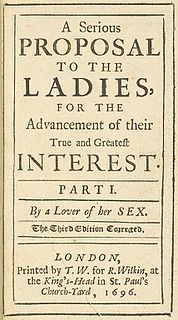A Quote by Francois de La Rochefoucauld
Happiness does not consist in things themselves but in the relish we have of them; and a man has attained it when he enjoys what he loves and desires himself, and not what other people think lovely and desirable.
Related Quotes
Meditative state is the highest state of existence. So long as there is desire, no real happiness can come. It is only the contemplative, witness-like study of objects that brings to us real enjoyment and happiness. The animal has its happiness in the senses, the man in his intellect, and the god in spiritual contemplation. It is only to the soul that has attained to this contemplative state that the world really becomes beautiful. To him who desires nothing, and does not mix himself up with them, the manifold changes of nature are one panorama of beauty and sublimity.
Love is very important in The First Man, in that [Albert] Camus loves these things he never chose, he loves his childhood experience in a very real way. Their poverty meant that there was nothing else they could think about but what they would eat, how they would clothe themselves. There's just no room for other things in his family. It's difficult for others to imagine the position in which he found himself. There is no imaginary existence in their lives.
For my part I think the Learned, and Unlearned Blockhead pretty equal; for 'tis all one to me, whether a Man talk Nonsense, or unintelligible Sense, I am diverted and edified alike by either; the one enjoys himself less, but suffers his Friends to do it more; the other enjoys himself and his own Humour enough, but will let no body else do it in his Company.
Infidelity does not consist in believing, or in disbelieving; it consists in professing to believe what he does not believe. It is impossible to calculate the moral mischief, if I may so express it, that mental lying has produced in society. When a man has so far corrupted and prostituted the chastity of his mind, as to subscribe his professional belief to things he does not believe, he has prepared himself for the commission of every other crime.
When I look at what the world does and where people nowadays believe they can find happiness, I am not sure that that is true happiness. The happiness of these ordinary people seems to consist in slavishly imitating the majority, as if this were their only choice. And yet they all believe they are happy. I cannot decide whether that is happiness or not. Is there such a thing as happiness?
Man is full of desires: he loves only those who can satisfy them all. "This man is a good mathematician," someone will say. But I have no concern for mathematics; he would take me for a proposition. "That one is a good soldier." He would take me for a besieged town. I need, that is to say, a decent man who can accommodate himself to all my desires in a general sort of way.
The chances are that you have already come to believe that happiness is unattainable. But men have attained it. And they have attained it by realizing that happiness does not spring from the procuring of physical or mental pleasure, but from the development of reason and the adjustment of conduct to principles.
The readiest way which God takes to draw a man to himself is, to afflict him in that he loves most, and with good reason; and to cause this affliction to arise from some good action done with a single eye; because nothing can more clearly show him the emptiness of what is most lovely and desirable in the world.
The world does not consist of 100 percent Christians and 100 percent non-Christians. There are people (a great many of them) who are slowly ceasing to be Christians but who still call themselves by that name: some of them are clergymen. There are other people who are slowly becoming Christians though they do not yet call themselves so.
The man who fears to be alone will never be anything but lonely, no matter how much he may surround himself with people. But the man who learns, in solitude and recollection, to be at peace with his own loneliness, and to prefer its reality to the illusion of merely natural companionship, comes to know the invisible companionship of God. Such a one is alone with God in all places, and he alone truly enjoys the companionship of other men, because he loves them in God in Whom their presence is not tiresome, and because of Whom his own love for them can never know satiety.
The solitary and thoughtful stroller finds a singular intoxication in this universal communion. The man who loves to lose himself in a crowd enjoys feverish delights that the egoist locked up in himself as in a box, and the slothful man like a mollusk in his shell, will be eternally deprived of. He adopts as his own all the occupations, all the joys and all the sorrows that chance offers.


































